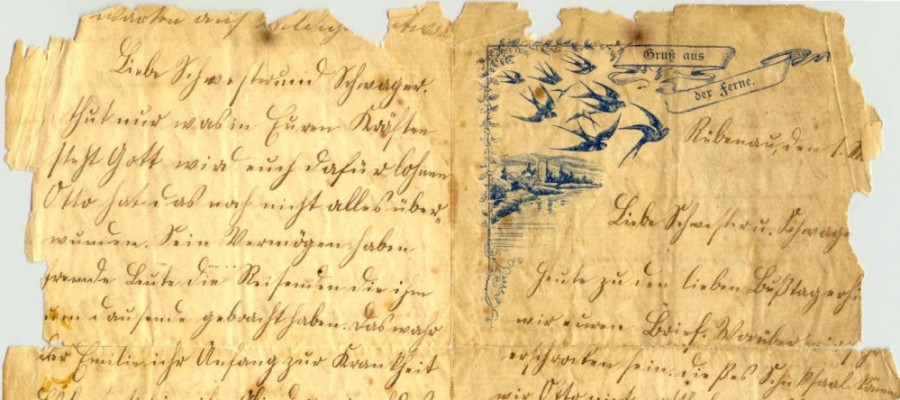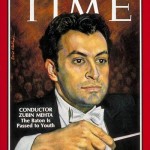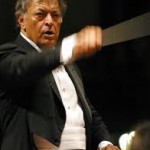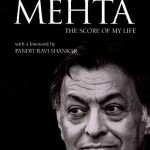Requiem por Biblioteca Nacional Sarajevo
Mehta ble født inn i en parsisk familie i Bombay (nå Mumbai), India. Han er sønn av fiolinisten Mehli og Tehmina Mehta. Mehli Mehta var ved siden av å være fiolinist også BombaySymfoniorkesters grunnlegger og første dirigent. Etter at han hadde bestått eksamen ved St. Mary’s High School i Mazagoan, Mumbai var planen at han skulle studere medisin. Istedenfor dette begynte han å studere kontrabass med Wienerfilharmoniens solobassist Otto Rühm og direksjon med Hans Swarowsky i Wien, Østerrike da han var 18. Samtidig med Zubin Metha studerte også dirigenten Claudio Abbado og dirigenten / pianisten Daniel Barenboim i Wien. Metha debuterte som dirigent i Wien i 1958, og vant senere samme år «International Conducting Competition» i Liverpool. Samme år fikk han stillingen som assistentdirigent ved Royal Liverpool Philharmonic Orchestra.
Ved Montreal Symphony Orchestra var Mehta fra 1960–1967 hoveddirigent og musikalsk leder. Etter dette gikk han videre til å være musikalsk leder for Los Angeles Philharmonic Orchestra(1962–1978), New York Philharmonic Orchestra (1978–1991). Han er den som lengst har vært musikalsk leder for New York Philarmonic Orchestra. I 1969 ble han utnevnt til musikalsk rådgiver for Israel Philharmonic Orchestra, musikalsk leder i 1977 og i 1981 utnevnte de ham til musikalsk leder på livstid. Ved siden av dette har han fra 1998 vært musikalsk leder for Bayerische Staatsoper i München. Han er Münchner Philharmonikers æresdirigent.
I 1990 dirigerte han Orchestra del Maggio Musicale Fiorentino og Orchestra del Teatro dell’Opera di Roma under den første Three Tenorskonserten i Roma, og senere igjen i 1994 for konserten iDodger Stadium, Los Angeles. I juni 1994, oppførte Mehta Mozarts Requiem, sammen med medlemmer av Sarajevos symfoniorkester og kor ved ruinene etter Sarajevo’s nasjonalbibliotek. Konserten ble arrangert for å minnes menneskene som ble drept i Jugoslavia-krigene og for å samle inn penger for ofrene av disse væpnede konfliktene. 29. august 1999, dirigerte han Mahlers andre symfoni (Oppstandelsen), like ved der konsentrasjonsleiren Buchenwald lå ved den tyske byen Weimar. I denne konserten spilte Bayerische Staatsopers orkester og Israel Philharmonic Orchestra sammen. I 1984 turnerte han i India og Mumbai (Bombay) med New York Philharmonic Orchestra, noe han gjentok med Israel Philharmonic Orchestra med solistene Itzhak Perlmanog Gil Shaham i november-desember 1994. I 1997 og 1998, arbeidet han sammen med den kinesiske filmregissøren Zhang Yimou på en produksjon av operaen Turandot (Giacomo Puccini). Denne produksjonen ble tatt opp i Firenze, Italia og Beijing, Kina der den ble oppført i sine rette omgivelser, i den Forbudte By med mer enn 300 statister og 300 soldater. Totalt ble operaen spilt åtte ganger. Historien om produksjonen ble fastlagt i en dokumentær kalt The Turandot Project med Mehta som forteller.
Han ble tildelt Wolfprisen i 1996.
Zubin Mehta særlig kjent for sine tolkninger av storslagne ny-romantiske symfoniske verk av komponister som for eksempel Anton Bruckner, Richard Strauss og Gustav Mahler. Han har også gjort opptak av Ravi Shankars Sitar Concerto No. 2, med Shankar og London Philharmonic Orchestra. Hans måte å dirigere på er kjent som flamboyant og kraftig.
I 2000 ble Zarin Mehta, Zubins bror, ansatt som executive director for New York Philharmonic Orchestra.
I 2001, fikk han Padma Vibhushanmedaljen av den indiske regjeringen. Dette er den nest høyeste æresbevisningen for sivile i India.
I juli/august 2005 besøkte han Bombay (nå Mumbai) der han overvar et program organisert av «Mehli Mehta music foundation».
26. desember 2005, på årsdagen etter Tsunamien i det Indiske hav, opptrådte Zubin Mehta og Bavarian State Orchestra for første gang i Madras (nå Chennai) ved det verdenskjente «Madras Music Academy». Denne minnekonserten var organisert av det tyske konsulatet i Madras sammen med Max-Mueller Bhavan/Goethe instituttet. Opptredenen ble sett av en hall fullsatt av inviterte gjester. Det var nesten 3000 gjester, blant de mer kjente var Amartya Sen(Nobelprisvinner i økonomi) og guvernøren for Tamil Nadu, Surjit Singh Barnala. Zubin Mehta opptrådte også i Delhis Indira Gandhi Stadion 28. desember. 2006 er Mehtas siste år med Bayerns statsorkester.
Mehta gift med Nancy Kovack, en tidligere amerikansk film- og fjernsynsskuespillerinne. Livet hans er beskrevet i filmen Portrait of Zubin Mehta av Terry Sanders og i en bok skrevet av Martin Bookspan og Ross Yockey, «Zubin: The Zubin Mehta Story».
For hele konserten se; http://www.youtube.com/watch?v=WNKHUwGWr1c
Some 10,000 people, the vast majority civilians and many of them children, have died or disappeared during the Serbian nationalists’ bombardment of Sarajevo since the Bosnian war began more than two years ago.
Tonight, in the charred shell of the National Library, which was destroyed by Serbian gunners, Zubin Mehta conducted Sarajevo’s orchestra and chorus in a televised benefit performance of Mozart’s Requiem, his Mass for the dead.
“We are all completely devastated by what we have seen here,” Mr. Mehta said.
“There are quite a few members of the orchestra for whom we are playing the Requiem,” he added. One orchestra member was killed during the bombardment, which ended in February under the threat of NATO air strikes, and six died of natural causes in that time.
“When the chorus sang ‘Amen’ this afternoon, I was with tears in my eyes,” Mr. Mehta said after a rehearsal on Saturday that drew a standing-room-only crowd at the National Theater. “We have come for you to bless us more than we to bless you.”
The tenor Jose Carreras, who took part in today’s performance, said, “This is a real privilege for us, to show the people from this part of the world that the international community is behind them.”
The hulk of the library, one of the most surreal ruins in this city of twisted steel, pocked walls and shattered glass, must be one of the eeriest venues ever chosen for a performance of the Requiem. Once Sarajevo’s City Hall, the building was built by the Austrians in a style mixing Oriental and classical features.
“We wanted to highlight what happened at the library,” said Francesco Stochino, a Venice-based producer who helped organize the concert.
City workers rigged spotlights from a balcony around the octagonal main hall and erected a tiered stage over the piles of brick, cinder and the ash of tons of paper on the floor.
At the performance tonight, the evening sunlight sparkled through a shattered stained-glass window above the hall and the music wafted out of the empty windows.
While rehearsals at other sites were open to the public, the library is not equipped for an audience and the promoters closed the 35-minute concert to all but 50 invited guests, including some of the top United Nations officials in Bosnia. Dozens of armed Bosnian policemen and soldiers guarded the building and kept vehicle traffic and local people at least a block away.
Hidajeta Tankovic, 47, a cellist who has played with the orchestra for 24 years, said the concert tonight had brought meaning back to her life.
“I feel reborn,” said Miss Tankovic, who walked from one end of the city to another during the siege giving cello lessons to children. “I was wounded in the leg that day on Vasa Miskina Street,” she said, referring to a shelling attack on a crowded bread line two years ago. “I wasn’t hurt too badly. So I got up and tried to help the sister of one of my colleagues. She died.”
“I’m so excited about the Requiem I haven’t been able to sleep in two days,” said Miss Tankovic, who is using a beginner’s cello because her own instrument was destroyed when a piece of shrapnel ripped through her home in Dobrinja, a front-line neighborhood.
“I had it all wrapped up in a blanket and stashed in an armoire,” she said of her cello. “The shrapnel tore right through the body as if they were aiming for it.”
Joining Mr. Carreras in the performance, and donating their time as he and Mr. Mehta did, were the soprano Cecilia Gasdia, the mezzo-soprano Ildiko Komlosi and the bass Ruggero Raimondi
The organizers said they hoped to raise more than $5 million for refugee aid from donations called in during the live broadcast to Italy, Japan and the Middle East and taped broadcasts in other countries. They also plan to sell videos of the concert.
Miss Komlosi, a former member of the Budapest Opera, sang in a benefit performance in Sarajevo in January, a time, she said, when “it was still very dangerous.”
“I felt that the sun was not allowed to shine here. It was so sad.”
“It has changed so much in five months,” she said. “I am happy to see people walking on the street again. This time I brought meat, chocolate, sugar, coffee, anything I could carry.” She said she had to cancel an appearance in Cincinnati to perform here.
“I told them I was sorry,” she said. “But this is a little more important.”
The fighting continued this weekend. On Saturday night, machine-gun fire and explosions of rocket-propelled grenades erupted from the cemetery area, a few hundred yards from the performers’ hotel.
This afternoon, snipers killed one man and also wounded a child who was a passenger on a streetcar rolling by the Holiday Inn.
“We just hope that when we leave something will happen,” Mr. Mehta said. “Something to convince somebody to stop this madness. Maybe we’ll come someday and play the Second Symphony of Mahler,” he said. “The ‘Resurrection.’ “





c1rdua essa tarefa de aenrpatarmos o que realmente somos, ne9, Mia?De sermos fie9is a nf3s mesmos, exteriorizando nosso interior.Ne3o que a gente queira enganar algue9m, longe disso, mas as pessoas je1 tem um imagine1rio do que seja, ou melhor, de como e9 uma professora, uma me9dica, uma publicite1ria, um(a) estilista e, se vocea ne3o meio que incorpora o personagem, parece que traiu as expectativas, rs.A atividade profissional, e0s vezes, nos amarra aos esteref3tipos.O estado civil, a maternidade, enfim, somos rotuladas por tantas etiquetas , rs.Surpreendentemente, Consuelo e9 exatamente como e9: e a admiro muito por isso.c9 preciso muita coragem para sermos como somos.Desde a 1aa vez que a vi, foi assim: dine2mica, sorridente, extrovertida, calorosa, confiante, auteantica, sincera e, acho que a caracteredstica que mais apanhei/recolhi : de uma meninice sem igual. O bacana e9 que ela ne3o precisa fazer tipo, posar disso ou daquilo. c9 o que e9 e pronto. c9 preciso ter uma base muito sf3lida para tanto. Torna-te o que e9s . Alguns atribuem (erroneamente) essa frase a Nietzsche (embora ele tb a tenha proferido). Na verdade, je1 este1 em Pedndaro (poeta grego do se9c. IV).Esse e9 um desafio home9rico, digno de um He9rcules, rs.E vamo q vamo que a prosa te1 e9 bf4a!Mil beijoslu.